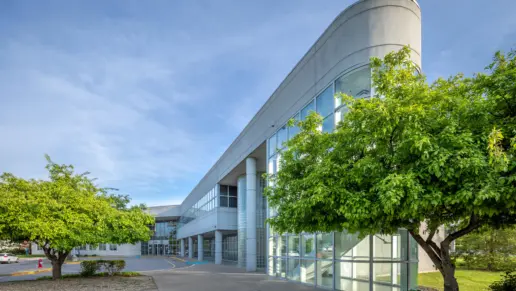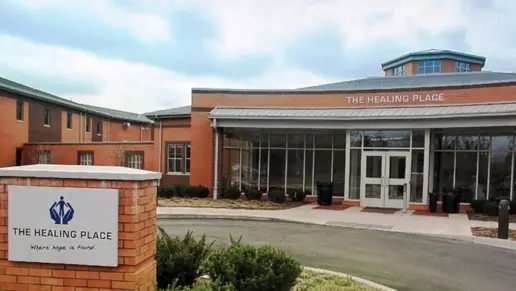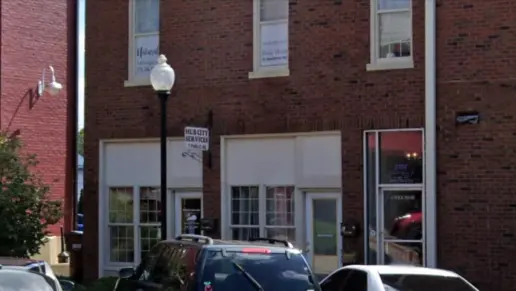The staff is excellent and the environment. My only problem is that the only thing that matters is money.
About 2nd Chance Clinic
2nd Chance Clinic is an outpatient opioid recovery facility in Lexington, Kentucky. They help adults and adolescents overcome opioid use disorders. They also support folks with co-occurring disorders. This is when someone is dealing with both opioid addiction and mental issues. Their services include medication assisted treatment (MAT), targeted case management and counseling support. These services are provided by an interdisciplinary clinical team comprising experts in opioid addiction recovery.
During intake you’ll undergo a diagnostic assessment. This helps the team to craft a personalized treatment plan that guides your recovery journey. Their MAT program combines meds approved by the FDA with counseling and behavioral therapy to support recovery. This technique is effective in treating addiction to opioids, alcohol and stimulants. The facility uses buprenorphine and Vivitrol for opioid misuse and naltrexone for alcoholism. These meds reduce withdrawal symptoms and curb cravings. This prepares you to respond better to behavioral therapy.
The facility offers individual and group counseling that draws from evidence based models that promote positive behavioral changes. A one-on-one session with your primary counselor presents an avenue to process emotions, fears and trauma that often precedes opioid use. You’ll learn how to manage stress, anger and various psychosocial issues that generate negative emotions. The goal is to develop coping and life skills that support lasting sobriety and prevent relapse.
Group counseling encourages community support through peer interaction in a safe and nonjudgmental setting. You’ll connect and share your experiences with peers facing similar behavioral challenges. Such interactions can boost your self confidence, improve your social skills and help you communicate better. It’s a great way to build a solid relationship and support system to benefit your recovery. You can even gain interpersonal skills like making better decisions, solving problems and resolving conflicts. Their group counseling covers recovery aspects like parenting, anger management and domestic violence.
Combining meds with comprehensive behavioral therapy this way prevents relapse and fosters a sober lifestyle. Their recovery program incorporates psychiatric support like medication management and education. This serves folks dealing with co-occurring conditions. Their targeted case management is a complementary service that addresses life challenges that can impact your recovery. This may include connection to community resources like housing, job and educational opportunities and medical care. Your case manager can also coordinate care, help you track appointments and advocate for you.
Latest Reviews
Rehab Score
Other Forms of Payment
Private insurance refers to any kind of healthcare coverage that isn't from the state or federal government. This includes individual and family plans offered by an employer or purchased from the Insurance Marketplace. Every plan will have different requirements and out of pocket costs so be sure to get the full details before you start treatment.
Self-pay involves paying for treatment out of your own pocket. You can use savings or credit, get a personal loan, or receive help from family and friends to fund your treatment. If you don't have insurance or your insurance plan doesn't cover a specific program, self-pay can help ensure you still get the care you need.
Medicaid is a state based program that helps lower-income individuals and families pay for healthcare. Medicaid covers addiction treatment so those enrolled can use their coverage to pay for rehab. When a program accepts Medicaid the client often pays very little or nothing out of their own pocket.
Addiction Treatments
Levels of Care
Treatments
Opioid rehabs specialize in supporting those recovering from opioid addiction. They treat those suffering from addiction to illegal opioids like heroin, as well as prescription drugs like oxycodone. These centers typically combine both physical as well as mental and emotional support to help stop addiction. Physical support often includes medical detox and subsequent medical support (including medication), and mental support includes in-depth therapy to address the underlying causes of addiction.
Substance rehabs focus on helping individuals recover from substance abuse, including alcohol and drug addiction (both illegal and prescription drugs). They often include the opportunity to engage in both individual as well as group therapy.
Programs



Clinical Services
Group therapy is any therapeutic work that happens in a group (not one-on-one). There are a number of different group therapy modalities, including support groups, experiential therapy, psycho-education, and more. Group therapy involves treatment as well as processing interaction between group members. Group meetings will be held on weekly basis with variety of topics including relapse prevention, chemical dependency, parenting, domestic violence, anger management, etc. In groups you will find people struggling with cravings and old behavior patterns just like yourself. Lead by the counselor the patient will all contribute to the discussion about how to best avoid triggers and keep moving toward sobriety.
In individual therapy, a patient meets one-on-one with a trained psychologist or counselor. Therapy is a pivotal part of effective substance abuse treatment, as it often covers root causes of addiction, including challenges faced by the patient in their social, family, and work/school life. Substance use disorder stems from issues beyond the physical dependence. The multidisciplinary team will help clients learn how to cope with stress, triggers, and psychosocial development. Treatment plans will be individually customized to meet each client’s unique needs.
Amenities
-
Private Rooms
Accreditations

The Commission on Accreditation of Rehabilitation Facilities (CARF) is a non-profit organization that specifically accredits rehab organizations. Founded in 1966, CARF's, mission is to help service providers like rehab facilities maintain high standards of care.
CARF Accreditation: Yes

LegitScript has reviewed 2nd Chance Clinic as part of their certification program, and has determined that it meets the LegitScript standards for legality, safety and transparency.
LegitScript verified in
Contact Information
1420 N Broadway
Lexington, KY 40505


